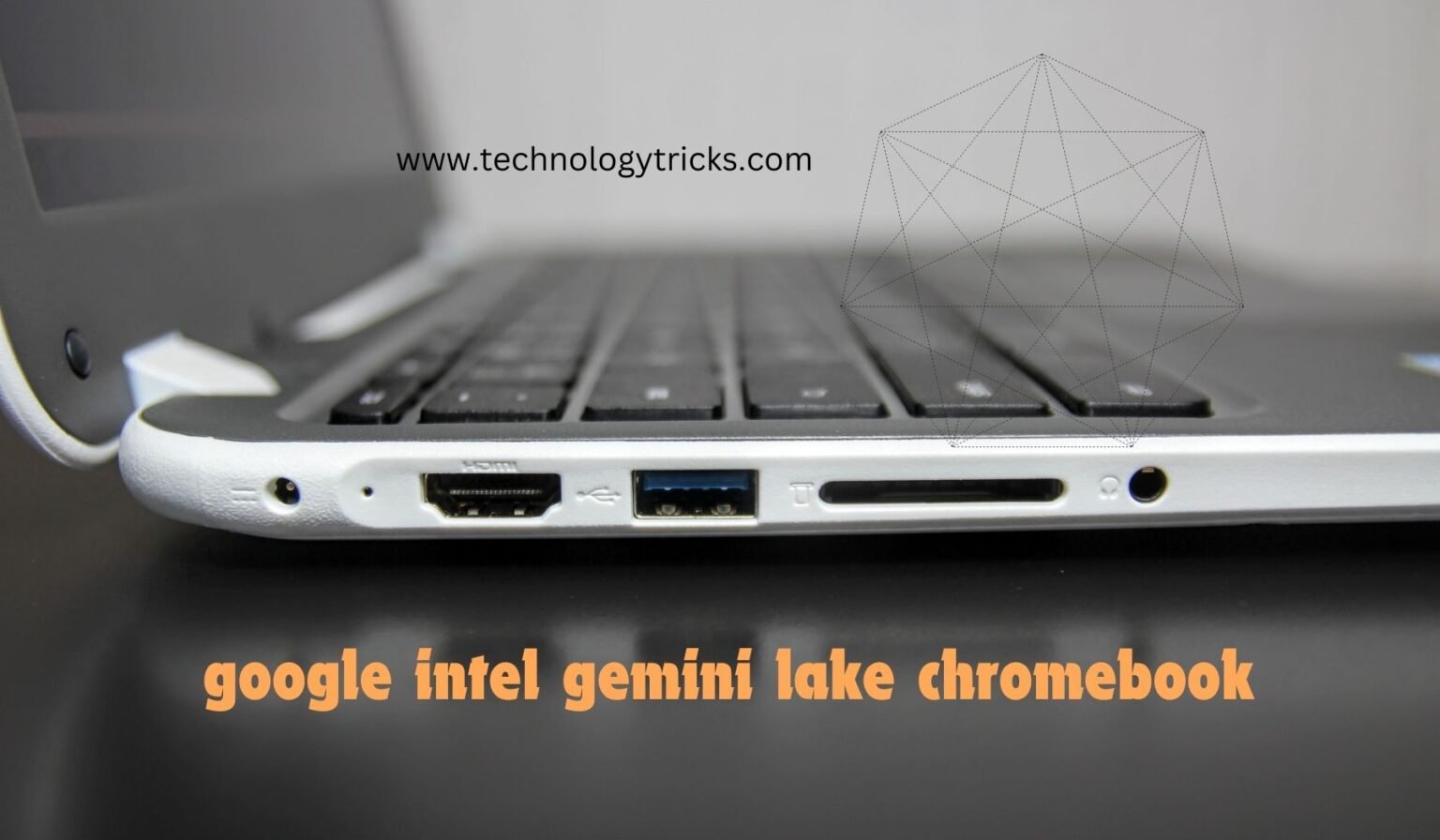The Google Intel Gemini Lake Chromebook heralds a new frontier in affordable computing. Efficient, with a budget-friendly design, the Chromebooks boast the powerhouse of Gemini Lake processors from Intel combined with the mighty operating system from Google. Seamless integration with Google’s suite of apps, impressive battery life, and reliable performance make it an ideal choice for both students and educators alike. For that, what follows is a comprehensive guide about the features and performance of Google’s Intel Gemini Lake Chromebooks, the answers to many questions about the machines, and further why they have become many people’s favorite in today’s world. Understanding Google’s Intel Gemini Lake Chromebooks
What is a Google Intel Gemini Lake Chromebook?
A Google Intel Gemini Lake Chromebook is an ultraportable, respectively, that boots Chrome OS, the operative system running Google on Linux. These are powered by the Gemini Lake processors from Intel for providing a good blend between performance and energy efficiency. Gemini Lake is part of the line of Atom processors provided by Intel, tuned to perfection to fit entry-level computing devices such as Chromebooks.
Key Specifications:
- Processor: Intel Celeron N4000, N4100, and Pentium Silver N5000
- RAM: 4-8 GB; Storage: 32-64 GB eMMC; Display: HD/Full HD 11.6- to 15.6-inch; Battery Life: up to 10-12 hours;
- Operating System: Chrome OS;
Why Choose a Chromebook with a Gemini Lake Processor?
The Intel Gemini Lake CPUs are indeed very affordable means for users who require consistent performance for daily usage. Although these are not the most powerful CPUs, they can easily serve the needs of users for simple tasks such as browsing through the internet, streaming content, editing documents, and using Google’s productivity suite. Chromebooks with Gemini Lake CPUs reportedly do a good job of supporting long battery life, hence ideal for on-the-go users.
Performance Analysis
Processor Performance
The dual-core Intel Celeron N4000 and the quad-core Intel Celeron N4100 represent the series known as Gemini Lake. These processors are based on the new Goldmont Plus architecture, an upgraded version of the older generation known as Apollo Lake. The base clock, on average, is around 1.1 GHz, with boosted clock speeds of around 2.7 GHz for higher-end variants.
Also read more: prince narula digital paypal
Benchmarking Data:
| Processor | Base Clock Speed | Boost Clock Speed | PassMark Score |
|---|---|---|---|
| Celeron N4000 | 1.1 GHz | 2.6 GHz | 1,315 |
| Celeron N4100 | 1.1 GHz | 2.4 GHz | 2,097 |
| Pentium Silver N5000 | 1.1 GHz | 2.7 GHz | 2,890 |
These benchmark scores reflect the performance level suitable for everyday computing tasks but may struggle with more demanding applications like high-end gaming or intensive video editing.
Battery Life
One of the high selling points for the Google Intel Gemini Lake Chromebooks is their battery life. Since Gemini Lake processors run in an energy-efficient manner, usage-based maximum battery life for these Chromebooks stretches to 12 hours. As a result, they are just perfect in use by students and professionals who may be in need of a reliable device throughout the day without having to deal with charging stress.
Battery Life Data:
| Model | Battery Capacity | Average Battery Life |
|---|---|---|
| Acer Chromebook 315 | 45Wh | Up to 10 hours |
| Lenovo Chromebook 100e | 42Wh | Up to 12 hours |
| HP Chromebook 14 | 47Wh | Up to 11.5 hours |
Graphics and Display
Chromebooks have never been famous for their ultimate graphics performance, but the integrated Intel UHD Graphics 600 in Gemini Lake processors is enough to handle regular work, such as streaming videos and casual playing of undemanding games. These Chromebooks generally boast 11.6-inch to 15.6-inch displays available in both HD and Full HD, showing clear and vibrant images for casual users.
Features and Benefits
Lightweight and Portable
Google Intel Gemini Lake Chromebooks have been designed to ensure they are lightweight and compact to enable easy movement from one location to another. Most models of these devices weigh between 2.5 to 3.5 pounds. They easily fit into a slim design to allow movement without feeling any weight, hence a good deal for students and professionals on the go.
Affordability
Probably the most significant advantage of Chromebooks with Gemini Lake processors is their affordability. Most of these gadgets fall in the range between $200 and $400, which for many students and teachers alike-and indeed, any regular customer who’s on a budget-is somewhat within budgetary reach.
Full Integration with Google Services
These Chromebooks are optimized to use Google’s suite of services, including Google Drive, Google Docs, Sheets, and Slides. The great level of integration herein makes working together, cloud storage, and access from any device very easy.
Security and Updates
Chromebooks are known for their robust security. Chromebooks auto-update directly with Google, meaning there will always be the latest security patches on them. Furthermore, the devices come with built-in virus protection that actually minimizes the opportunities for malware to hit them.
Also read more: 中兴 telnetonu1.5 版本
Frequently Asked Questions About Google Intel Gemini Lake Chromebooks
Are Chromebooks Gemini Lake Good Enough for Students to Use?
Indeed, Gemini Lake Chromebooks work great for students, since they are relatively more budget-friendly, portable devices that smoothly integrate with Google Classroom and other learning tools. This also makes them very trendy in educational circles, given that the strong battery life means it can get a student through a whole day at school on a single charge of their Chromebook.
Gemini Lake Chromebook: Can You Game on It?
The Gemini Lake Chromebooks are not for high-end gaming. They can run light gaming and also support the running of Android games available from the Google Play Store. Users intending for serious gaming, though, would have better options with more powerful processors and a dedicated graphics card.
How Does Google Intel Gemini Lake Chromebook rank up against other Chromebooks?
Compared to higher-scale processor Chromebooks, such as the Intel Core series, Gemini Lake Chromebooks are more budget-friendly, with lower performance. For a user who just needs to browse, stream, and do some productivity work, Gemini Lake Chromebooks will do a great value and be very cost-effective.
What Is the Average Lifespan of a Google Intel Gemini Lake Chromebook?
Then, there is the typical Gemini Lake processor that an average Chromebook sporting would last up to 5 to 6 years, the time for which Google supports it. In this period, it receives all the updates and security patches regularly. Beyond this, one is more likely to look at an upgrade to a newer device.
Are These Chromebooks Suitable for Professional Use?
Thus, Gemini Lake Chromebooks are adequate for professional usage, mainly for personnel who work mostly on cloud-based applications and just need a basic device for email, document editing, and web conferencing. However, professionals needing more processing power or specialized software have to look higher up the range.
Conclusion
The Google Intel Gemini Lake Chromebook strikes a great balance between affordability, performance, and portability. Be it a student, professional, or person in search of a reliable secondary device, these Chromebooks have a lot to offer. Long-lasting batteries, seamless integration with the Google ecosystem, and a robust set of security features make them ready for anything from basic web-based work to a full-scale office setting. Though not the most powerful machines out there, their value for money is simply outstanding. In fact, as technology progresses with time, Chromebooks with Gemini Lake have remained quite a feasible low-cost means of computing.

